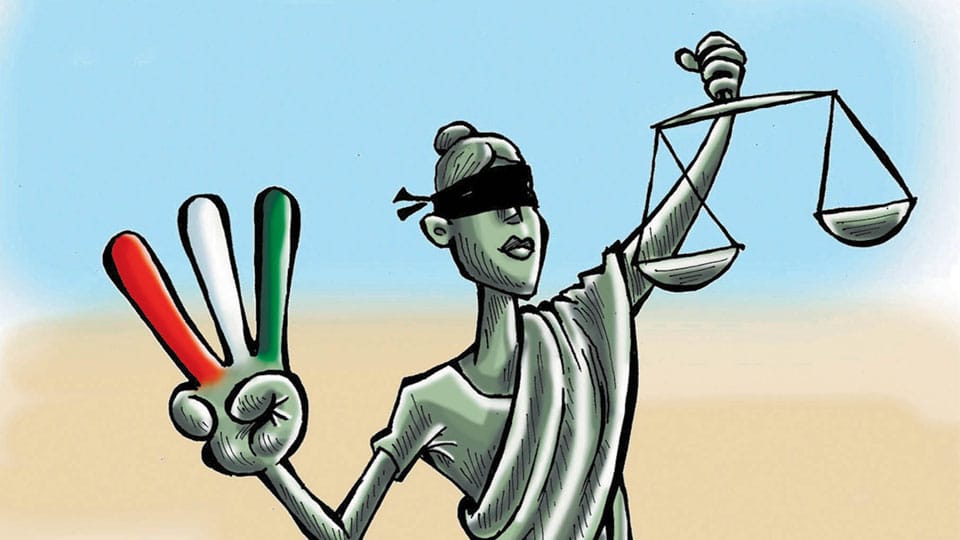A quote from Publius Tacitus, famously said, “Corruptissima re publica plurimae leges”, which could be vaguely translated as “The more corrupt a State, the more numerous the laws”. India with its verbose and cumbersome law books epitomises the quotation. Rule of law forms the foundation for any modern democratic setup; it commands that no power be used arbitrarily. It requires as its prerequisite, that the law books be precise in enshrining the intrinsic attributes of the democracy it serves and ensure that this is done in the simplest manner possible. India’s penchant for legislations led to the Rule of Law often being followed in letter but not in spirit.
Law-making should be a dynamic process, taking into account the transitions of political, economic and societal landscapes in a country. Indian lawmakers over the years have failed to deliver on this front. The overzealous law-making has led to “several statutes that with the advent of time have become obsolete, redundant or repetitive”. A study of Assam, done by the Centre for Civil Society (CCS), reveals quite a few blemishes in its statute books. Let us look at some laws for Assam which if repealed would improve the quality of governance, and government-public interaction at large.
Various state laws are subsumed by central legislation or newer laws. This leads to crippling administrative inefficiencies like confusion over jurisdiction, creation of legal discrepancies and so on. The Assam Students and Juvenile Smoking Act, 1923 for example, prevents smoking by students and any person apparently under the age of sixteen. The fine imposed under the act on persons selling tobacco, cigarettes etc to any person under the age of 16 and a student under the age of 17, is ridiculously low, i.e., not exceeding 50 rupees. Moreover, there exists a central legislation – Juvenile Justice (Care and Protection of Children) Act 2015; which imposes a penalty of 1 lakh and a maximum imprisonment of 7 years for the same offence.The state act has thus been subsumed by the central act and doesn’t serve any purpose except for creating a legal and administrative mess, and providing the offenders with a legal loophole to escape the requisite punishment.
Our colonial heritage is also sometimes reflected in our laws. There often exists statutes which are downright draconian, and have no place in a democracy. For instance, The Assam Disturbed Areas Act, 1955 was enacted for suppression of disorder and maintenance of public order in disturbed areas of Assam. The act gives power to any Magistrate or Police officer (not below the rank of Hawaldar) or any officer of Assam Rifles (not below the rank of Hawaldar) to shoot any person for maintenance of public order. The act also protects the officers from legal proceedings for their actions done under section 4 and 5 of the act. This is a colonial era law and is redundant in today’s time where the government is of the people, by the people and for the people. It challenges the human rights of the citizens and has high potential of misuse by the state personnel, with extreme repercussions.
A third category of laws eligible for repeal or at least a rethink are the ones which curtail the social and economic freedom of the citizens. The Assam Prevention of Begging Act, 1964 provides for the prevention of begging, and for the custody, trial and punishment of beggar offenders in the state. The act of begging is defined in a vague manner and could be misused by government officials to harass ordinary citizens. The law also gives police officers or any other person authorized by the state, extensive powers to arrest without warrant, any person who is found begging. This can act as a tool for intimidation and extortion due to its discretionary and arbitrary nature. But more importantly, the law treats beggars as criminals, thus overlooking the factors responsible for his acute poverty; blatant shifting of the responsibility from the failure of the state to ensure a basic level of human dignity for all, posing concerns for the right to life and liberty of not just the beggar, but also his/her dependents.
The burden of obsolete, redundant or unconstitutional laws makes our legal system fragile and open to misuse. It invites unscrupulous officials to engage in corruption, and harass law – abiding citizens. It adversely affects the overall ecosystem in which citizens reside and function in a society. Therefore, it is imperative that our law books are regularly cleaned up and such statutes weeded out. Only then can we ensure the principle of Rule of Law exists not only on paper, but also on the ground.
Post Disclaimer
The opinions expressed in this essay are those of the authors. They do not purport to reflect the opinions or views of CCS.






